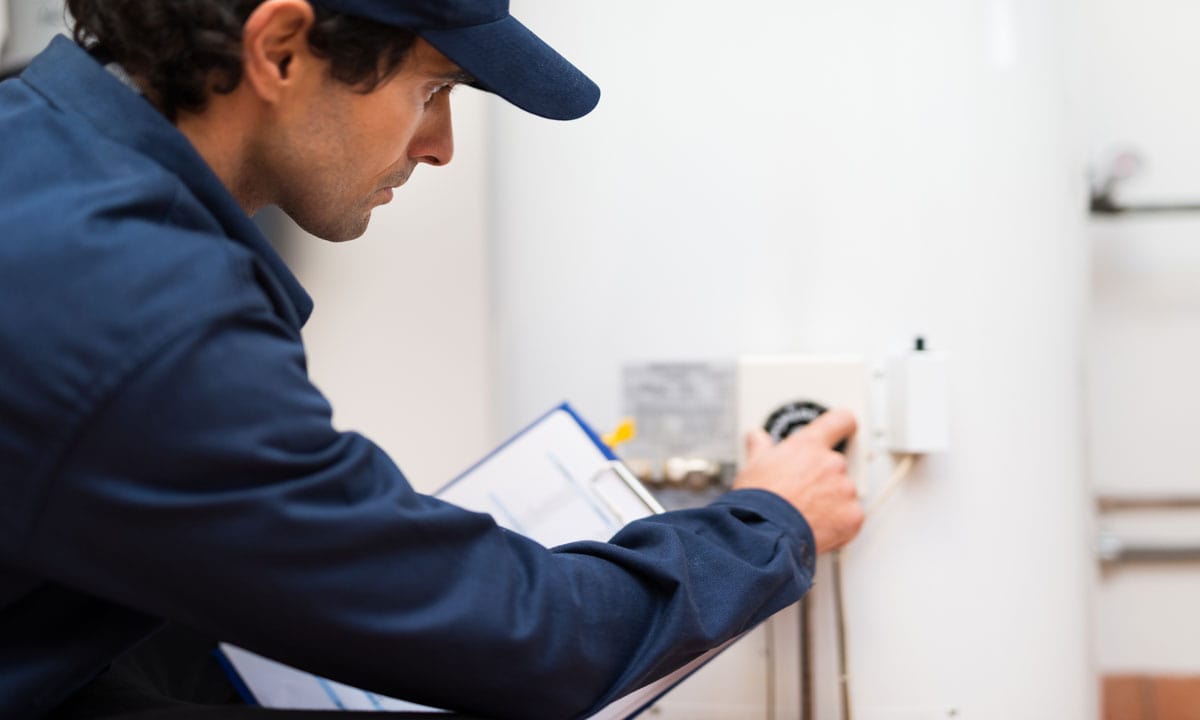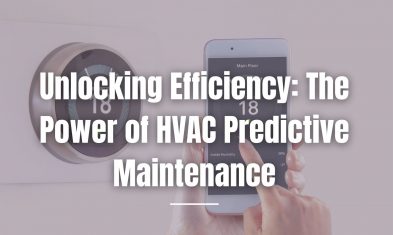Having a comprehensive understanding of water heater basics is crucial, as they are an essential component of any residential or commercial plumbing system.
Use this article to become a well-informed plumber who can guide clients in choosing the right water heater based on client needs, preferences and budget.
Discover the water heating basics, including the various types and key features available.
Tank Water Heaters
Tank water heaters are the most common and traditional water heater types found in residential and commercial properties. They store and heat water in a large tank, typically ranging from 30 to 100 gallons.
Here are some key features of a tank water heater:
- Storage Capacity: The size of the tank determines the water storage capacity. Choose an appropriate tank size based on the number of occupants in the building as well as their hot water usage patterns.
- Heat Source: A tank water heater is powered by electricity, natural gas, propane or sometimes oil. Electric heaters are generally more affordable to purchase, while gas heaters tend to be more energy-efficient in the long run.
- Recovery Rate: Stepping into an ice cold shower is never a good experience. The recovery rate refers to how quickly the water heater can reheat the water after use. Higher recovery rates are essential for properties with heavy hot water demand.
- Insulation: A modern tank water heater is well-insulated to minimize heat loss and increase energy efficiency.
Tankless Water Heaters
Tankless water heaters (i.e. on-demand or instantaneous water heaters) have gained popularity due to their energy efficiency and space-saving design.
Here are the key features of tankless water heaters:
- Continuous Hot Water: Tankless water heaters heat water as it passes through the unit, providing a continuous supply of hot water on-demand.
- Compact Design: Tankless heaters are smaller and more compact than tank water heaters, making them ideal for properties with limited space.
- Energy Efficiency: Tankless water heaters only heat water when needed, reducing energy consumption and utility costs compared to traditional tank heaters.
- Initial Cost: While tankless water heaters may have a higher upfront cost, their energy-saving benefits can result in cost savings over time.
Heat Pump Water Heaters
Heat pump water heaters work by transferring heat from the surrounding air to the water, making them highly energy-efficient.
Here are the key features of heat pump water heaters:
- Energy Savings: Heat pump water heaters can be up to three times more energy-efficient than traditional electric water heaters, making them an eco-friendly choice.
- Installation Considerations: They require adequate space with sufficient ventilation, as they draw heat from the surrounding air.
- Hybrid Models: Some heat pump water heaters can switch to traditional electric heating during peak demand periods.
Solar Water Heaters
Solar water heaters harness the sun’s energy to heat water, making them an environmentally friendly option.
Here are the key features of a solar water heater:
- Energy Efficiency: Solar heaters use renewable energy, reducing reliance on conventional power sources and lowering utility bills.
- Initial Investment: While solar water heaters may have higher upfront costs, they offer significant long-term savings.
- Backup System: Solar heaters often have a backup heating element, ensuring hot water availability during cloudy days or high-demand periods.
Condensing Water Heaters
Condensing water heaters are a type of tankless water heater that utilizes the exhaust gasses to preheat incoming cold water. This process increases energy efficiency and reduces greenhouse gas emissions.
Here are the key features of a condensing water heater:
- High Efficiency: Condensing water heaters achieve high efficiency ratings, resulting in significant energy savings.
- Venting Requirements: Due to the low exhaust temperatures, condensing water heaters typically require special venting materials.
Point-of-Use Water Heaters
Point-of-use water heaters are compact units installed near the source of hot water demand, such as under sinks or close to showers.
Here are the key features of a point-of-use water heater:
- Instant Hot Water: Point-of-use water heaters provide hot water immediately, eliminating the need for long waits.
- Energy Efficiency: As they only heat water for a specific location, they prevent wastage of hot water and improve energy efficiency.
- Versatility: Point-of-use heaters are versatile and can be installed in various locations where hot water is needed.
Other Important Features to Consider
Warranty
Hot water heaters usually have a 3-12 year warranty, and you’ll need to pay more for a more extended warranty. It’s best to choose one with the most extended warranty available.
Incentives and Rebates
Many high efficiency tanks can qualify for various incentives, rebates and tax credits.
Glass-lined Tanks
Glass-lined tanks reduce corrosion, which helps in the long-run.
Digital Displays
Digital displays help you monitor levels and customized operation. Some water heaters with displays allow you to set a vacation mode for when you’re away.
Solar water heaters with displays can show tank temperatures, along with pressure readings and other useful information.
Brass vs. Plastic Drain Valves
Always look for brass drain valves since they’re more durable than plastic.
Want to save money and time? Schedule a personalized FieldEdge demo today!
You’ve Mastered the Water Heater Basics!
Now, you have a better understanding of the different water heater types and their features, which is essential for providing high-quality service to your clients.
By educating yourself on water heater basics, you can guide your clients in making informed decisions that align with their hot water needs and budget.
Whether it’s an energy-saving upgrade or a reliable replacement, your expertise in water heaters will undoubtedly be a valuable asset in your plumbing business.




